Disinvited: Amid Censorship, Schools Abruptly Cancel Author Visits
While book bans and other efforts to curtail free expression in schools have made headlines, canceled visits have gone relatively unmarked. SLJ spoke with authors about their experiences.
 |
Illustration and SLJ September cover (below) by Dan Page |
Author Vicki Johnson came to writing late in life. When her debut picture book, Molly’s Tuxedo, came out last year, it was an important milestone in her career.
The story of a little girl who wants to wear a tuxedo for picture day at school was immediately praised for its depiction of a gender-nonconforming main character, landing it on the American Library Association’s (ALA) Rainbow Project Book List.
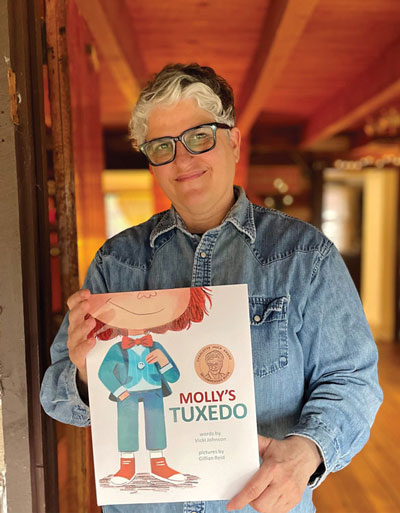 |
Vicki Johnson with her book Molly’s TuxedoPhoto courtesy of Vicki Johnson |
Johnson toured at festivals and at bookstores, but she was particularly excited for the school year to roll around to go on her first school visit, which serendipitously was scheduled for National School Picture Day.
The timing couldn’t have been better, and Johnson’s local independent bookstore had even donated 240 copies of the book, one for each student.
Then, at the last minute, the visit was canceled. Johnson was told to pick up her books and was offered little explanation. But she could guess the reason: someone had taken issue with the LGBTQIA+ theme of her story.
“It was pretty devastating to have that happen,” Johnson says. “I was surprised how it hit me. I’ve been out for decades and been involved in the [LGBTQIA+] community and thought I’d experienced it all being a queer person.”
Books by or about underrepresented voices have been under attack for years. According to the latest data from ALA, 4,240 unique book titles faced censorship efforts in schools and libraries in 2023, and nearly half were titles that represent LGBTQIA+ and BIPOC individuals.
While book bans and other efforts to curtail free expression in schools have made national headlines, canceled visits have gone relatively unmarked. According to officials at ALA’s Office for Intellectual Freedom, they have only tracked a handful of canceled author visits the last few years. But those numbers are possibly much higher, as authors and illustrators might not be aware that they can and should report cancellations.
Kasey Meehan, director of PEN America’s Freedom to Read project, says that canceled author visits are just one more symptom of the wave of censorship sweeping through public education, targeting BIPOC and LGBTQIA+ authors, characters, and themes.
“Over the last few years, many author visits have been canceled, often with little explanation, and author contracts have been amended to prohibit discussions of specific topics, identities, or even entire works from their collection,” Meehan says. “The result is a less robust learning experience for students, and a less robust paycheck for hardworking authors.”
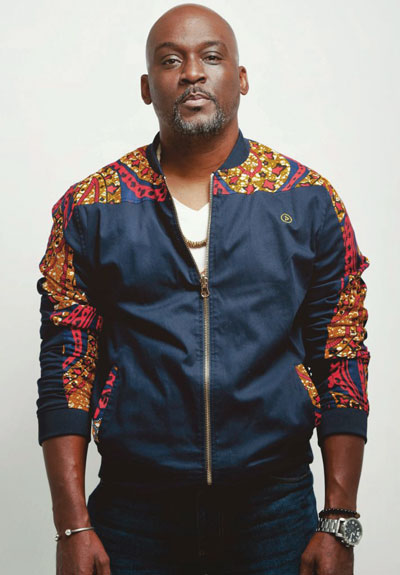 |
Derrick BarnesPhoto by EyeSun Photography |
It was a mystery to Derrick Barnes, coauthor of Victory. Stand!: Raising My Fist for Justice, a National Book Award finalist, why his visit to the community of Hoover, AL, was canceled abruptly. Barnes was set to speak to several schools for Black History Month last year before the school district rescinded its invitation.
As PEN America reported, school officials blamed the lack of a signed contract for the change in schedule, but the superintendent later admitted a parent had complained.
Barnes called the decision “very cowardly” in a conversation with PEN America. It’s unclear what the parent complained about, but a local news outlet reported that it stemmed from social media posts from Barnes with “controversial ideas.”
It’s no mystery what “controversial ideas” refers to. Issues over race, gender, and sexuality have been the cause of thousands of book bans and the motivation for educational laws prohibiting students from learning about them. And they are likely the cause for author visits being canceled.
“The goal for these people, these groups that ban books, narrow-minded school board members and racist politicians, is to make children’s book authors and librarians, of all professions, out to be the bad guy. It’s crazy,” Barnes wrote in an email to SLJ. “We can’t allow their voices to be louder than ours, especially when we are in the right.”
Barnes says that parents and adults who think they are protecting their students from controversial ideas are doing the opposite.
“It’s a missed opportunity, especially for white students in rural or predominately white areas who don’t get the chance to meet Black artists or artists of color,” Barnes says. “Those adults that think they are helping their white children by keeping them from the truth about our country’s history, not exposing them to people who speak different languages, practice different religions and customs, are only doing those children a grave disservice.”
Lost opportunities
Having a school visit canceled is upsetting for any author or illustrator, but it’s particularly painful for those being targeted for simply living their lives.
“A lot of us write these stories because we’ve experienced these things already—rejection of some form—and so when we put it out into the world, it’s this double whammy,” Johnson says. She equates this “soft censorship” with the effect of a book ban. “Students don’t get access to these stories that could be important to them, and it’s sad.”
[Also Read: "The Cover-Up: Under Pressure, Some School Librarians Alter Illustrations to Avoid Book Challenges"]
But in some ways, this soft censorship is even more insidious than a more public book ban, especially since sometimes authors aren’t even aware of why their visit is canceled.
That was the case for award-winning middle grade author Kari Anne Holt. In 2019, she was set to visit a private school in Flint, MI, to discuss her book Rhyme Schemer, about a boy who learns how not to be a bully.
Holt had a whole day planned to speak to the entire school over the course of three presentations, but when she arrived, the principal told her that there had been a change. Most students needed to prepare for exams due to snow days. Holt ended up speaking for about 45 minutes with a dozen seniors.
 |
Emma StraubPhoto by Melanie Dunea |
It felt “super weird” for Holt, but she took the principal at their word. It was only later that she received a message over Twitter from a student who revealed that some in the school thought her presentation would have been inappropriate for younger students. After some digging, Holt, who is openly LGBTQIA+, verified that a parent had seen a rainbow flag on her Twitter profile and complained to the school.
Phil Bildner, a children’s book author and founder of the booking agency the Author Village, says that he is also seeing more and more schools and districts increase how closely they review the social media activity and online lives of authors and illustrators before they come to visit.
“In some instances, all it takes is a single post that can be questioned, misconstrued, or twisted to eliminate an author from consideration,” Bildner says.
For Holt, having her visit so significantly reduced was especially insulting.
“Rather than uninviting me, because they knew that would draw attention, they could say, ‘you came, you got your check,’” Holt says. “That whole thing really sucked, and I felt extra dumb because I didn’t even realize what was happening. They smiled and they were polite and extra devious.”
Since that experience, Holt has seen her school invites nearly vanish. She keeps a Google Drive of all her school visits. In the 2022–23 school year, Holt went to about 35 schools. This past year, it was four.
Johnson says that, anecdotally from what she sees online and hears from fellow queer authors, school visits have dried up for everyone.
Bildner concurs. “Authors who have written books with LGBTQIA+ content are receiving fewer and fewer invitations to speak to students at public elementary schools,” he says.
Losing out on school visits doesn’t just deprive authors of getting to speaking to their fans. It also has a serious impact on their income.
“I didn’t realize how dependent I was on school visits until I started watching them go away,” says Holt, who started teaching at the low-residency MFA program at Vermont College of Fine Arts to supplement her income.
In addition to speaking fees, school visits are also where most children’s book authors sell their work.
“From my bookseller’s point of view and author point of view, school visits are the number one way that children’s book authors sell books,” says Emma Straub, a novelist and owner of the independent bookstore Books Are Magic in Brooklyn, NY. “You sell more books at a well-run school visit than any other kind of event. If you’re not Dav Pilkey, one of the most well-selling authors, that’s where you are making your livelihood.”
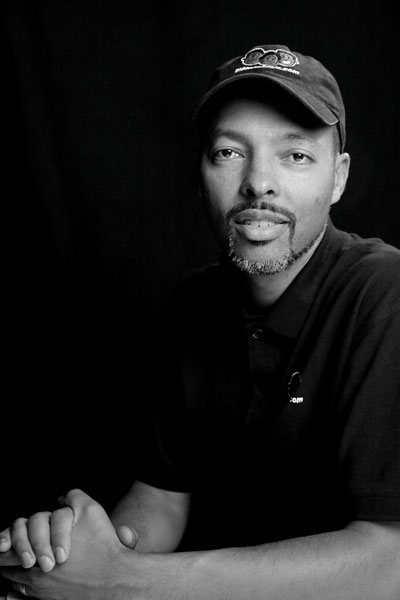 |
Jerry CraftPhoto by Hollis King |
In addition to knowing the industry, Straub also knows firsthand about having a visit canceled. Although she’s best known for her books for adults, Straub released her first children’s book, Very Good Hats, last year, and subsequently had two school visits to the Katy Independent School District in Texas canceled. Katy is the same district that in 2021 canceled a visit from Newbery Award–winning author Jerry Craft, who was initially invited to speak about his book New Kid.
While Craft was canceled over claims that his book, about a Black student attending an elite private school, promoted critical race theory, Straub’s book wasn’t even the cause for concern. Parents objected to a Tweet she had written that said, “[F---] guns.”
“Was I going to swear at these children? Was I going to talk about guns? No,” Straub says. “I was going to read a picture book about hats. And I think the same is true for all the authors and illustrators who get uninvited for stuff that’s much more closely tied to their identity than my feelings about guns.”
Straub calls her experience minor in comparison to what so many other authors and illustrators have gone through. But her example still reflects on what can happen when just a single parent complains.
“That really showed me how this works,” Straub says. “And most of the time when authors are uninvited, it has to do with some aspect of their identity that the parents feel they need to ‘protect’ their children from, to shield their children from, because they are afraid that, let’s say, there is a gay author coming to speak about their adorable middle grade chapter book, that somehow it will become some political rally that the parents don’t agree with. Which is absurd.”
“That’s one of the really tangible things that really hurts my heart,” says Holt. “The ‘agenda’ is to prove to kids that they can grow up and be who they are.”
Refusing to be censored
So much is lost when an author or illustrator is blocked from visiting a school. Students are deprived of the chance to hear firsthand from the creator of their favorite book, while for others, they lose a chance to hear from a role model.
“Having that visibility for kids who live in places where they don’t always see the LGBTQIA+ community around or out, or a dorky mom who has a wife,” Holt says. “It’s really cool to just chat with kids and be representative and not a stereotype.”
Author and illustrator Chad Sell was set to discuss his graphic novel The Cardboard Kingdom during a day of visits to Fairfield Public Schools in Connecticut when the superintendent canceled his visit without warning.
Once again, it came out that the visit had been derailed because of concern raised by a parent. Sell’s book contains queer and gender-non-conforming characters, and Sell himself is gay.
“It was a weird and murky situation because the superintendent wasn’t forthcoming,” Sell says. He still doesn’t know how many people complained or what the complaints were even about. “It was very stressful and confusing.”
And while it was sad for students to miss out on the visit, it was equally upsetting for Sell. Book creators can live solitary lives, oftentimes writing and drawing on their own, and Sell says, “the whole joy of being an author is seeing your book in the world and engaging with people reading it, and it’s especially magical for a children’s book author.” Losing out on those opportunities hurts.
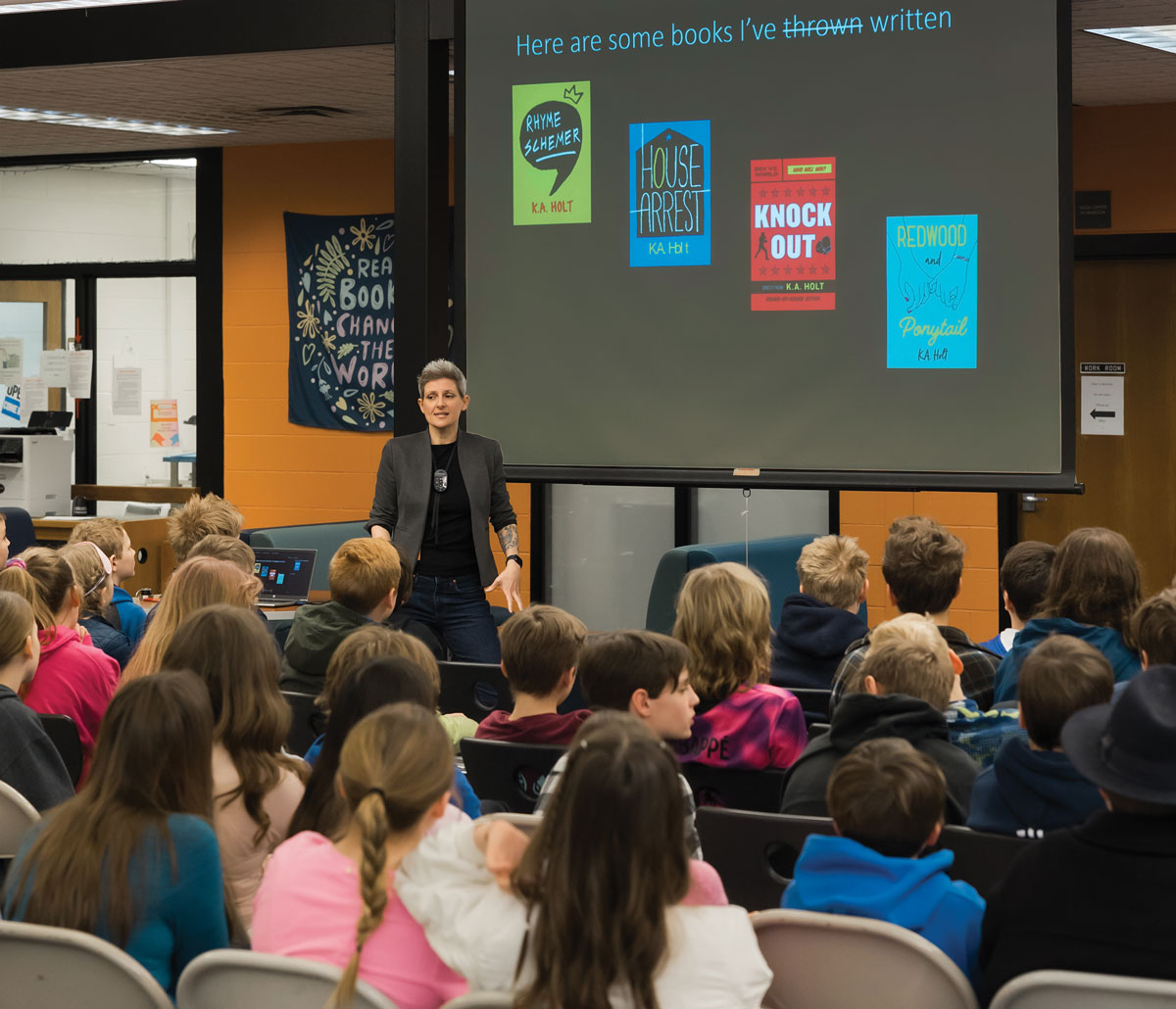 |
Kari Anne HoltPhoto by Nina Herrst |
Despite the challenges, authors and illustrators are still finding ways to speak with students and get books into the hands of young readers, beyond the protests of a school board or a PTA.
After his school event was canceled, Sell found support through Connecticut’s Fairfield Public Library, which held a sold-out public event after the district disinvited him. He also recently participated in a children’s literacy festival sponsored through Truman University in Kirksville, MO, which brought nearly 1,500 kids from all over the region to hear diverse authors speak.
Other authors and illustrators have found a partner in their local independent bookstore.
In her small Appalachian town in West Virginia, Johnson has worked closely with the local independent bookstore, WordPlay. Owner Marlene England says she sees teachers and librarians are more cautious these days about hosting authors and illustrators, while publicists tell her that they are having trouble setting up school visits for their authors. But independent bookstores can do their part in bridging the divide.
“If you have a bookstore and space for events, that’s a perfect way to broaden access for kids,” England says. In addition to the bookstore, England also runs WordPlay Connects, a nonprofit arm that provides free books for local students during author visits and community events.
Thanks to WordPlay, Johnson was able to give away free copies of Molly’s Tuxedo during a Halloween celebration and during a local music fest this summer.
But these alternatives aren’t fixes, and they don’t let schools off the hook.
Carolyn Foote is a retired school librarian and cofounder of Texas FReadom Fighters, a nonprofit advocacy organization defending the right to read. Foote says that while the current climate has created a real sense of fear, school librarians need to make sure they aren’t just giving up.
“I know it’s hard right now, but I encourage school librarians to really ask yourself, are you giving into self-censorship?” Foote says. “Is there really a reason not to include a library author visit? Because as librarians, we know the huge benefit for kids.”
Author visits often can encourage students to pick up a book or even write their own story. Foote suggests that librarians share these positive outcomes with their principals when thinking about inviting an author, as well as linking a visit with professional and state standards to provide hard evidence.
“It’s not being rebellious to say, ‘This is my professional duty.’ That’s part of our responsibility as educators, and we have to be vigilant about self-censorship,” Foote says. And in addition to the literacy benefits, author visits also demystify how books are made, revealing to students how they, too, can write their own story.
“To realize a book didn’t just fall from the sky but is an act of creation,” she says. “That’s so important for students to understand.”
Freelance education reporter Andrew Bauld writes frequently for SLJ .
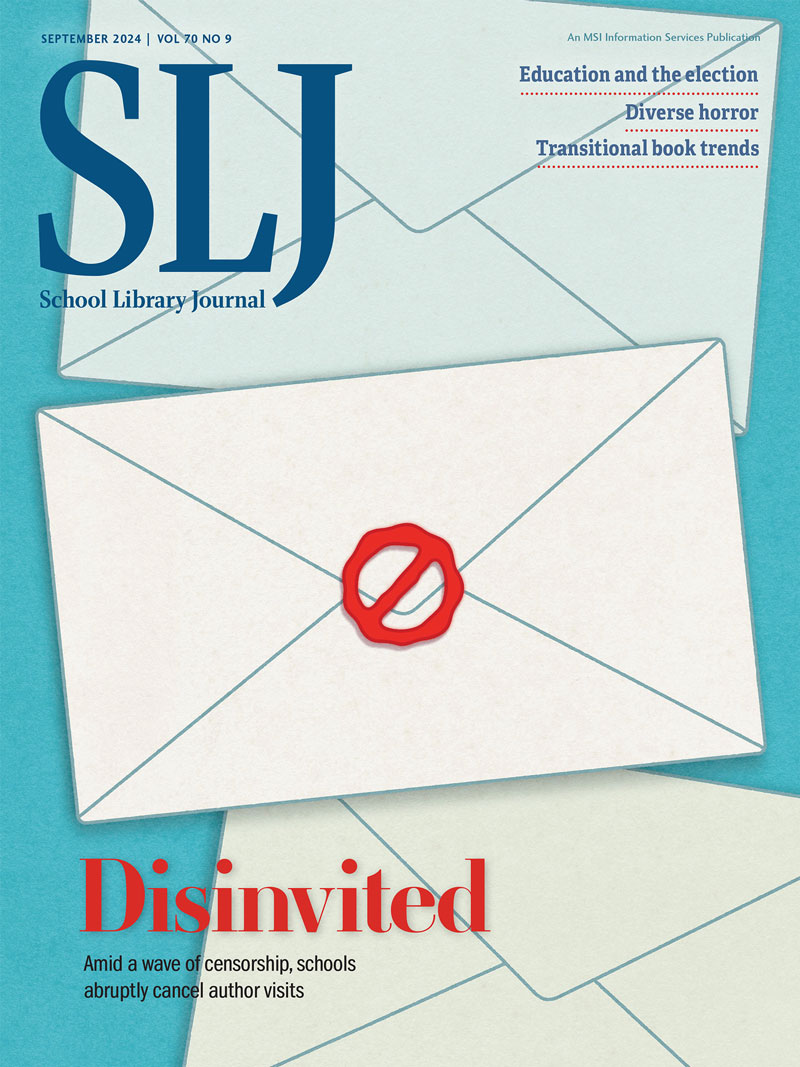
RELATED
The job outlook in 2030: Librarians will be in demand
The job outlook in 2030: Librarians will be in demand
ALREADY A SUBSCRIBER? LOG IN
We are currently offering this content for free. Sign up now to activate your personal profile, where you can save articles for future viewing





Add Comment :-
Be the first reader to comment.
Comment Policy:
Comment should not be empty !!!